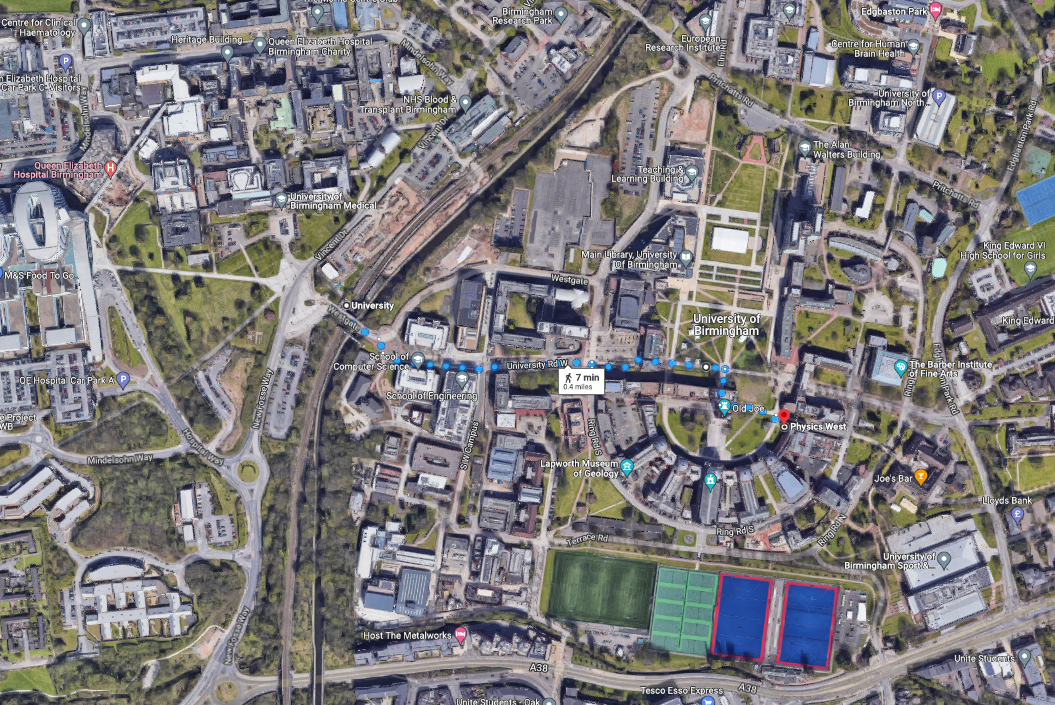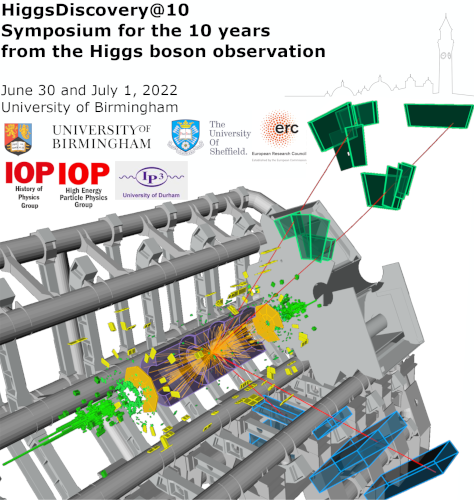Reaching Birmingham
Birmingham international airport (BHX), located about 10 km from the city centre, offers flights to major airports in Europe and beyond, e.g. EasyJet operates direct flights from Geneva.
Other airports located within 3 hours from Birmingham by public transport are: London Heathrow (LHR), London City (LCY), London Gatwick (LGW), London Luton (LTN), Manchester (MAN), Liverpool (LPL), East Midlands (EMA) and Bristol (BRS).
Birmingham New Street Station is a major hub of the United Kingdom rail network, with regular connections from all parts of the United Kingdom. Rail travel times are below 2 hours from Bristol, London, Liverpool and Manchester, and about 4 hours from Edinburgh, Glasgow and Newcastle. Train timetables can be found and tickets can be booked at the National Rail Enquiries.
Birmingham airport to city centre
Birmingham airport has a very frequent train service to Birmingham New Street station in the city centre. Take a free 90 second ride in the AirRail link to Birmingham International station and buy your ticket for a 10–15 minute journey into Birmingham (cost: up to £7.20 return to Birmingham New Street, up to £8 return to University). Alternatively a taxi for the journey to the city centre or the University takes around 30 minutes and costs about £25-£30.
City centre to University
The University of Birmingham main campus is located about 5 km south-west of the city centre, and has its own railway station called "University" [UNI]. There are about 6 trains per hour (fewer trains on Sundays) from the city centre (Birmingham New Street station) to the University station. University Station is an eight minutes travel from Birmingham New Street, where one can catch trains to locations all across the country. The tickets cost £2.40 (single), £3.00 (return). Departures are usually from platform 11 or 12 with a destination of either Longbridge or Redditch. For all timetable information visit National Rail Enquiries.
The station is a 7 minute walk away from the conference venue. To reach the University, cross the railway by the bridge after exiting the station and continue going straight.
Venue
The conference will be held at the Edgbaston campus of the University of Birmingham [campus map]. The meetings will be held in Physics West Building (R8). The University railway station (left hand side of the map) is a short minute walk away and has regular services to Birmingham City Centre.

Visas
Information about the UK visas are available at the Home Office [website]. Please contact the organisers for advice/help.
Information for EU/EEA/Swiss citizens
Accommodation
It is recommended to stay in Birmingham city centre, which gives easy access to the University via Birmingham New Street railway station. There are many hotels within easy walking distance of New Street station.
There are many suitable hotels, that can be found and booked through standard web tools. Please contact the organisers if you need advice. A few suggestions follow:
Budget
Mid-range
Higher Range
About Birmingham
Birmingham is the second largest city in the United Kingdom, and is a major centre for commerce and tourism. Surrounded by historic towns such as Warwick, Lichfield, Shrewsbury and Worcester, and with Stratford-upon-Avon some 20 miles away, the city is at the heart of a region with a distinctive part in the history of England.
Birmingham was at the centre of the Industrial Revolution, and retains many links to this period, with an eighteenth century canal system threading through the city and a number of industrial heritage museums in and around it. The Birmingham Lunar Society, an eighteenth century scientific society, was formed here, with regular participation from the founders of the Industrial Revolution, and included Joseph Priestley, Erasmus Darwin and James Watt among its members. Its importance was such that Benjamin Franklin and Thomas Jefferson were both corresponding members, and both made the journey to Birmingham to attend meetings here.
The city also has many connections in English literature; notably the writer and English scholar J.R.R. Tolkien was brought up in Birmingham. His experiences here (including the University clock tower!) provided the inspiration for many aspects of the Lord of the Rings books.
Today Birmingham is a vibrant and multi-cultural city, offering a wide range of different cultural spectacles, dining and nightlife. Together with its surrounding area, it offers a unique opportunity to visit a region at the very heart of England.
